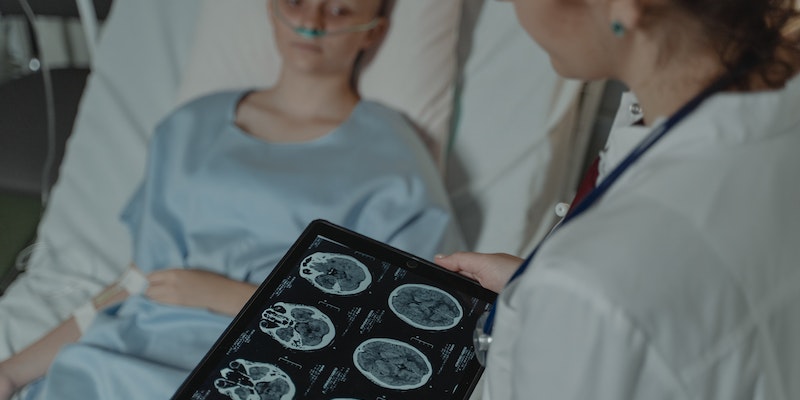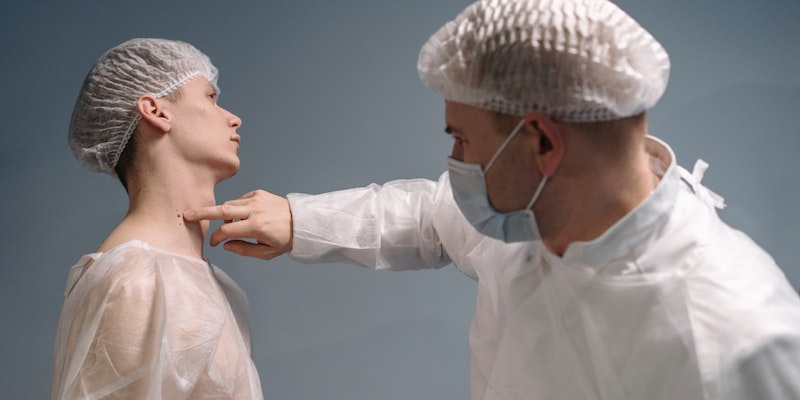Spotting Genital Herpes: Recognizing the Signs and Symptoms
Oct 01, 2023
Genital Herpes, a silent epidemic affecting millions worldwide, is characterized by distinct symptoms that necessitate immediate attention. Understanding the beginning genital herpes stages, seeking timely genital herpes medication, and exploring potential genital herpes cures are pivotal steps in managing this pervasive condition.
Beginning Genital Herpes Stages: Initial Recognition
Genital herpes is a prevalent STI caused by HSV-2 and, in some cases, HSV-1. Genital herpes is still misunderstood, emphasizing the need for correct knowledge and empathy. Understanding the beginning genital herpes stages is pivotal, as early recognition and intervention can significantly impact the course of the infection.
Primary Infection
Genital herpes typically kicks off with the primary infection. This stage is a chameleon, presenting a spectrum of symptoms that range from the subtle to the severe. Individuals navigating this phase might find themselves grappling with various flu-like symptoms. Fever acts as an uninvited guest, muscle aches transform daily tasks into Herculean efforts, and fatigue drapes itself over the body, making every movement feel like wading through molasses.
The primary infection underscores the necessity of being attuned to one's body, recognizing when something is amiss, and advocating for one's health.
Formation of Lesions
As individuals tread further into the beginning genital herpes stages, they encounter a defining hallmark: the emergence of small, red bumps around the genital area. These seemingly innocuous bumps are harbingers of what's to come, evolving into anything but benign blisters. The blisters are repositories of pain, oozing, and discomfort that can make every step a reminder of their presence.
Eventually, as if following a predetermined script, the blisters crust over and embark on healing. This phase, while challenging, is also a testament to the body's remarkable ability to repair and regenerate. It's a reminder that, with appropriate genital herpes medication and care, relief is not a distant dream but an achievable reality.
Asymptomatic Cases
The narrative of genital herpes is not uniform. A significant chapter is dedicated to asymptomatic cases, where individuals, unbeknownst to them, harbor the virus without displaying overt symptoms. This silent majority emphasizes the criticality of regular screenings for sexually active individuals, ensuring that the unseen does not remain undetected.
Asymptomatic cases are a clarion call for vigilance, for acknowledging that absence of evidence is not evidence of absence. They reinforce the importance of fostering open communication around sexual health and breaking down the barriers perpetuating silence and stigma.
A Closer Look at Symptoms

Let’s take a closer look at some common symptoms of herpes.
1. Pain and Itching
The inaugural sign of an impending outbreak often manifests as localized pain and itching in the genital area. These sensations are the body's alarm bells, heralding the formation of blisters. The discomfort, while distressing, is also an opportunity for early intervention, a chance to seek genital herpes medication and alleviate the outbreak's severity.
2. Formation of Ulcers
Next comes the formation of ulcers. The rupture of the blisters leaves painful ulcers, transforming routine activities such as urination into endeavors fraught with discomfort. The presence of ulcers is a reminder of the body's vulnerability, resilience, and healing capacity.
3. Systemic Symptoms
Genital herpes doesn't limit its impact to the genital area; it extends its reach systemically. Flu-like symptoms, including fever, headache, and muscle aches, often occur with the outbreak, particularly during the primary infection. These systemic manifestations are the body's distress signals, indicative of the internal battle against the virus.
4. Psychological Impact
The diagnosis and recurrent nature of the condition can cast long shadows, leading to feelings of shame, embarrassment, and anxiety. The emotional terrain can be as challenging to navigate as the physical symptoms, underscoring the necessity for comprehensive support and understanding.
Addressing the psychological impact is not merely about managing symptoms; it's about redefining narratives, fostering self-compassion, and dismantling the stigma that shrouds genital herpes. It's about recognizing that a diagnosis does not define worth and that everyone deserves empathy, respect, and care.
Diagnostic Approaches
Genital herpes can be diagnosed with a few approaches, including:
- Physical Examinations
- Viral Cultures and PCR Tests
- Blood Tests
Genital Herpes Medication and Cure
While there is no definitive genital herpes cure, ongoing research and clinical trials promise future developments. Vaccines, immunotherapies, and novel antiviral agents are under investigation, offering hope to those with this lifelong condition.
Antiviral Medication
Antiviral medications, such as acyclovir, famciclovir, and valacyclovir, are the cornerstone of genital herpes treatment. They are the sentinels at the cellular gates, blocking the virus and mitigating its impact. These medications play a pivotal role in reducing the severity and duration of symptoms, curbing the frequency of outbreaks, and minimizing the risk of transmission.
Pain Management
Pain and itching are the unrelenting companions of genital herpes outbreaks. Managing these symptoms requires an arsenal of relief – analgesics and topical anesthetics. These agents are the balm to the discomfort, offering solace and making the journey through outbreaks more bearable.
Long-Term Suppressive Therapy
For those who find themselves in the frequent company of outbreaks, long-term suppressive therapy with antiviral medications emerges as a beacon of hope. This approach is the steady hand steering the ship, managing symptoms, and reducing the frequency of outbreaks, enabling individuals to navigate through the waters of genital herpes with greater ease and confidence.
Vaccine Research
Developing a preventive and therapeutic vaccine against HSV-2 is a focal point of research, aiming to bolster immune responses to the virus.
Innovative Therapies
Emerging therapies exploring the modulation of the immune system and the targeted destruction of the viral genome are pioneering avenues for a potential genital herpes cure.
Preventive Measures and Lifestyle Modifications

Safe Sexual Practices: The consistent and correct use of condoms, open communication with partners, and regular STI screenings are fundamental in preventing the transmission of genital herpes.
Stress Management: Adopting stress management strategies, such as regular exercise, mindfulness, and adequate sleep, can mitigate the frequency of outbreaks.
Nutritional Support: A balanced diet rich in lysine and low in arginine and vitamin and mineral supplementation can support immune function and overall well-being.





